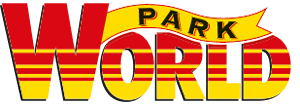by Heather M Eichenbaum Esq

In the United States, amusement parks are often regulated by State or local agencies. Many of these agencies have the authority to mandate how an amusement attraction is maintained or operated.
American amusement parks are also, always, governed by the federal Occupational Safety and Health Administration (OSHA). OSHA was created in 1970 to prevent work-related injuries, illnesses and deaths by issuing and enforcing standards for workplace health & safety and governs virtually all workplaces. OSHA standards include regulation of such common amusement park issues as fall protection, lock-out tag-out, guarding and personal protective equipment. You probably have a similar organisation in your country.
So, what do you do when an agency requires you to maintain or operate an amusement attraction in a way that you believe violates OSHA or other health & safety standards? After all, how do you weight patron safety – that is presumably the goal of the agency’s directive – against employee safety ensured through OSHA compliance?
You don’t.
If an agency is purporting to require you to take action(s) that would violate health & safety, you are placing yourself – and your employees – in a dangerous situation if you follow the directive. Instead, let the agency shut down the attraction and immediately seek legal assistance. You cannot knowingly violate OSHA regulations. Wilful (or sometimes even grossly negligent) violations can lead to criminal charges and, at the very least, will result in hefty fines.
Although you may lose income from the attraction, you can seek immediate legal relief through an injunctive procedure to obtain a “declaratory judgment” – a very quick ruling by the Court concerning your obligations to abide by OSHA standards. The Court should find that you cannot be required to violate OSHA by the agency and either overrule the agency’s mandate altogether or suggest some other means of finding a solution, such as mediation.
Keep in mind, however, that the Court may not always issue a ruling you like. The Court may side with the agency. However, at that point, if you re-open the attraction you at least have a plausible defence to any alleged OSHA violations because you were ordered by a Court to operate in that manner. Meanwhile, proceed quickly to obtain appellate review of the adverse decision.
Finally, get the ride manufacturer involved in these discussions whenever possible. This is particularly true where the agency is recommending a ride modification, either in design or operation, that causes you concerns about safety. The manufacturer will be in the best position to explain to the agency why its mandate is a bad idea. Further, the manufacturer may also be best able to explain your position to the Court if the agency won’t waiver and you are forced to file for relief.
In short, do not ever operate a ride in violation of OSHA or any other national health and safety standards. If you find yourself in a situation where you are being told you must do so, seek legal assistance and redress from the courts to best protect yourself, your guests and your employees from harm.
Heather Eichenbaum is an attorney with Spector Gadon & Rosen PC, located in Philadelphia, New Jersey, Florida and now New York. Clients include Six Flags, Steel Pier, Gillian’s Wonderland, Holiday World and Reithoffer Shows. Heather can be reached at +1 215-241-8856 or heichenbaum@lawsgr.com

